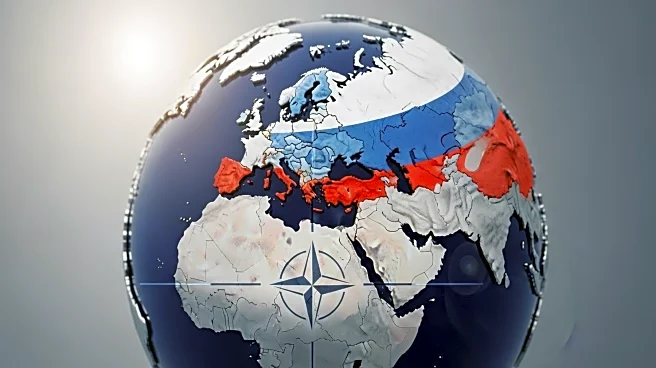What's Happening?
President Trump has outlined a strategy to avoid imposing further sanctions on Russia, contingent upon NATO nations ceasing their oil purchases from Russia. Despite bipartisan support in Congress for tougher sanctions, Trump has expressed reluctance to act unilaterally, emphasizing the need for collective action from NATO allies. He has stated that if NATO nations agree to stop buying Russian oil, he is prepared to implement major sanctions, which he believes could expedite the end of the war. Trump's stance comes amid ongoing frustrations with Russian President Vladimir Putin and recent provocations, such as a drone incursion into Poland.
Why It's Important?
The potential sanctions on Russia are significant as they could further strain the already tense relations between the U.S. and Russia, impacting global trade and energy markets. Trump's demand for NATO nations to halt Russian oil purchases highlights the geopolitical complexities of energy dependencies in Europe. If NATO complies, it could lead to a unified front against Russia, potentially weakening its economy. However, the reluctance of some NATO members to sever energy ties with Russia poses challenges to achieving consensus, which could delay or dilute the impact of sanctions.
What's Next?
The next steps involve diplomatic negotiations within NATO to address Trump's conditions. The alliance's ability to reach consensus will be crucial in determining the future of sanctions against Russia. European leaders may face pressure to align their policies with Trump's demands, balancing energy needs with geopolitical strategies. The situation also calls for monitoring Russia's response, as increased sanctions could provoke retaliatory measures, further escalating tensions.











